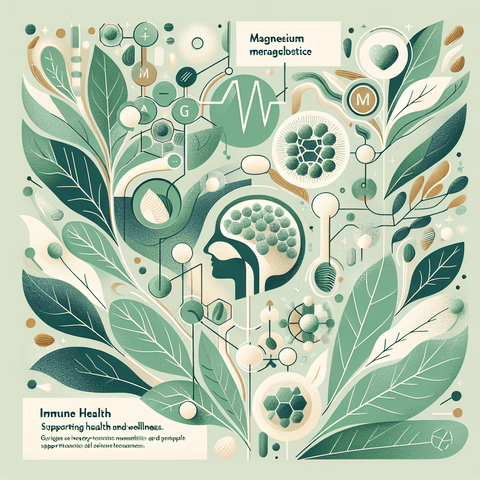Magnesium toxicity is the condition that occurs when levels of magnesium in the body become too high. Although magnesium is an essential mineral involved in many processes, magnesium toxicity can disrupt normal function, especially when the body cannot eliminate excess magnesium effectively. The danger increases with kidney issues, dehydration, or other medical circumstances that affect how the body handles magnesium. Recognizing magnesium toxicity early can help prevent serious complications. This page explains the symptoms, risks, and practical steps to stay safe and when to seek help. Common early signs of magnesium toxicity include nausea, vomiting, and a feeling of flushing or warmth. People may also notice weakness, sleepiness, or trouble with coordination and reflexes. As levels rise, breathing can become slower, heart rate can become irregular, and blood pressure may drop. Severe magnesium toxicity can lead to confusion, drowsiness, and, in extreme cases, trouble with breathing or coma. If you experience a combination of these symptoms, this may indicate magnesium toxicity, and you should seek urgent medical care. Magnesium toxicity can affect multiple body systems, most notably the nervous and cardiovascular systems. The main risk factors are reduced ability to remove magnesium from the body, such as kidney dysfunction, advanced age, or concurrent exposures to agents that raise magnesium levels. In clinical contexts, magnesium toxicity is a concern during certain procedures or when monitoring is not adequate. The consequences of magnesium toxicity can include severe breathing problems, dangerously low blood pressure, and changes in mental status. Practical steps to stay safe center on awareness and timely action. If you have risk factors, discuss magnesium management with a qualified professional and ensure any monitoring is up to date. Be vigilant for early signs and seek prompt help if symptoms appear or worsen. In any situation where magnesium levels might rise, ensure proper supervision and communication with care providers to prevent complications. Know when to seek help: if breathing becomes difficult, you feel faint, you have confusion, or you cannot stay awake, call emergency services immediately. This approach helps you stay informed about magnesium toxicity and respond quickly if concerns arise.

